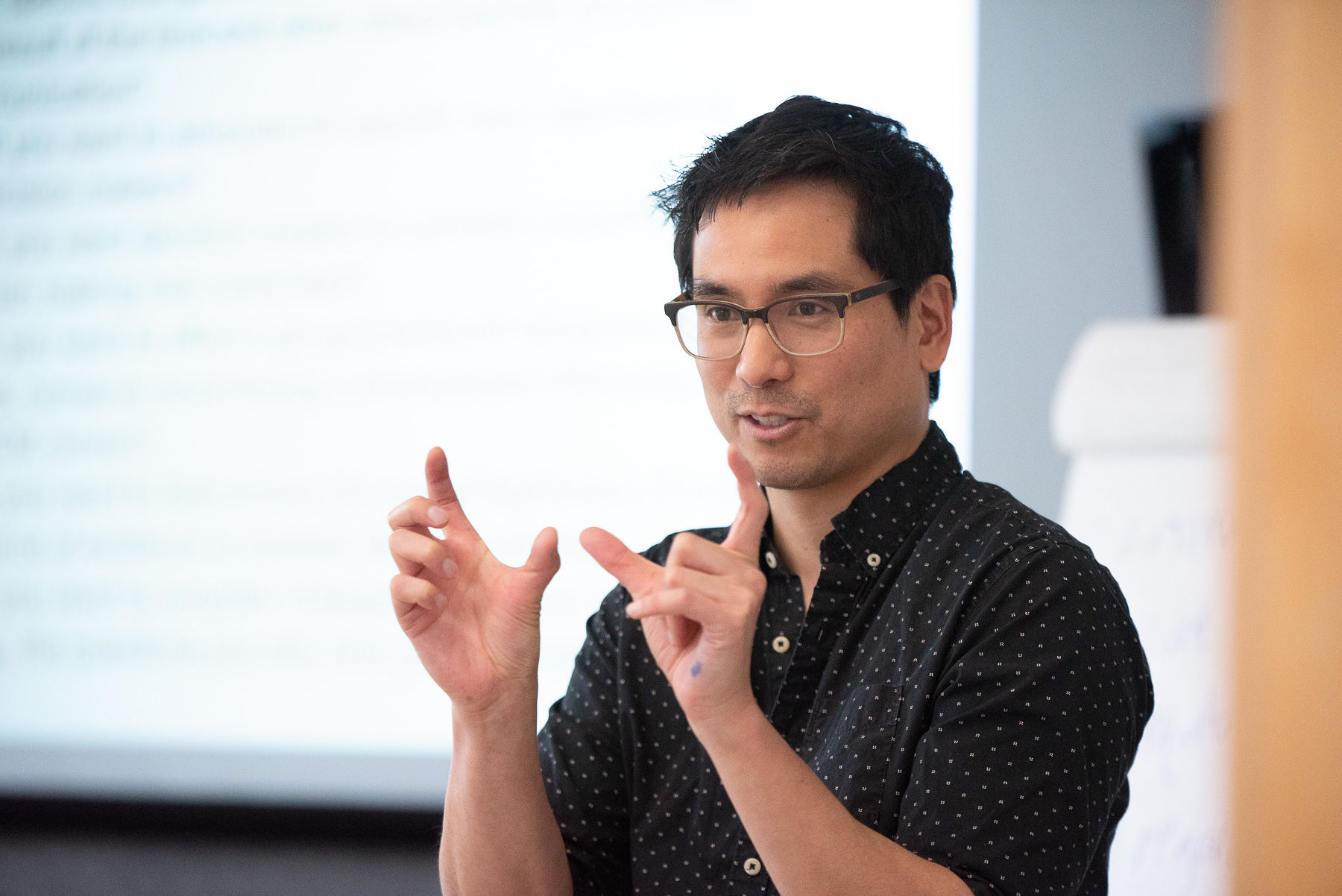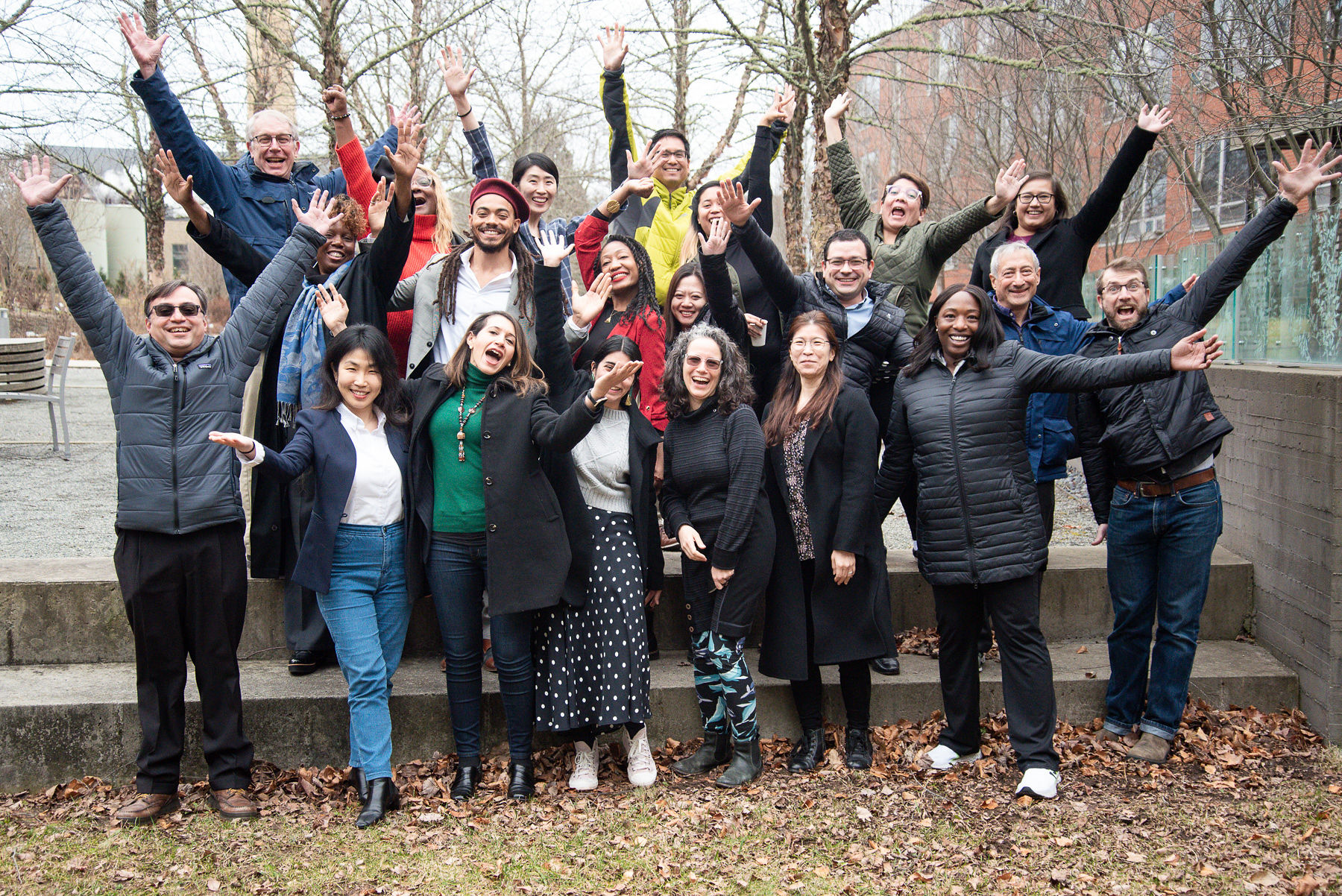
Dr. Bruno Takahashi, research lead for the SciComm Identities Project. Photo by Phoebe Neel
A recent partnership between Michigan State’s Knight Center for Environmental Journalism, the University of Rhode Island’s Metcalf Institute, and URI’s Science and Story Lab aims to expand diversity and create more inclusive spaces for the next generation of science communicators.
The SciComm Identities Project (SCIP) is a five-year project backed by $2.8 million in grant funding from the National Science Foundation. The project aims to promote racial and ethnic diversity within the field by developing science communication training that is centered on the identities, motivations, and experiences of racial and ethnic minority scientists.
While progress has been made to bring more voices into the field, historically marginalized scientists still face obstacles throughout their careers.
“When it comes to racial and ethnic minorities, there hasn’t been a lot of progress made,” says Dr. Bruno Takahashi, research lead for the SCIP project and director of research for the Knight Center for Environmental Journalism.
“The lack of that diversity within the sciences has an impact on both the topics studied, as well as how they are studied,” Takahashi said,
By taking an intercultural approach to science communication training, the project hopes to spark conversations about what it means to be a scientist, attract and retain underrepresented populations to the field, and change the system of science communication training.
“We’re interested in understanding how those differences in intercultural communication, might affect how they also approach their communication about science,” Takahashi said.
“They might take some of those cues in designing communication strategies, or designing their communication approach of who to communicate with or how to communicate,” he said.
The project will feature three one-year cohorts of junior faculty from around the country, with each group being given training informed by intercultural communication theories. Each fellowship cohort will have a different thematic focus. The 2023 cohort will focus on energy, 2024’s cohort will focus on water, with the final cohort focusing on agriculture and food security in 2025.
“By the end of the project, year five, we expect to have a series of recommendations…so that through our partners at the SciComm trainers network, they can disseminate them and hopefully see that most programs start to be more culturally mindful about their trainings,” Takahashi said.
This summer, the first SCIP cohort will visit MSU to create a series of podcasts while also working with MSU communications to gain expertise in media relations. The weeklong visit will be facilitated by Knight Center faculty members Eric Freedman, David Poulson and Bruno Takahashi.

SCIP team members are pictured alongside the first cohort of SCIP Fellows. The group met in January to discuss how their individual identities influence their work as science communicators. Photo by Phoebe Neel
To keep up to date with the SciComm Identities Project, meet this year’s fellows, and learn more about the research behind the initiative, visit the SciComm Identities Project website.
